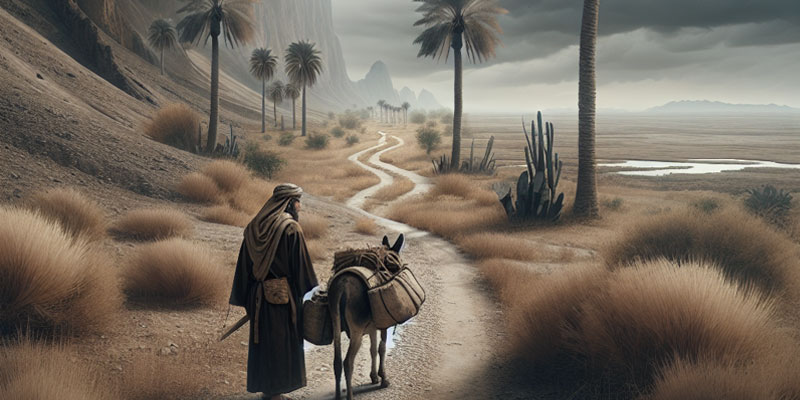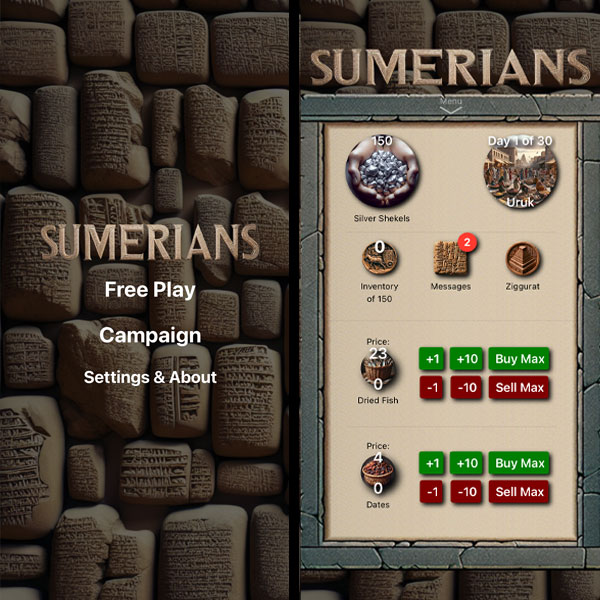
Historical iOS Game: Sumerians
Glen Brunke, November 30, 2024December 8, 2024 Update: Download Sumerians free on the App Store: Sumerians
Earlier this year, I set out to create my first iOS game and release it on the App Store. Mission accomplished. As I dive into my second game development project, I'm discovering that each new game brings its own unique challenges and learning opportunities. After completing my first game (which taught me the fundamentals of game development), I decided to tackle something more ambitious: a merchant simulation set in ancient Sumer.
Why Sumer? Well, it's fascinating how this ancient civilization created some of the first complex trading systems in human history. The idea of players navigating the bustling markets of Ur or Uruk, trading barley for precious metals, and maintaining their own cuneiform accounting tablets was too exciting to pass up.
The learning curve has been steep but rewarding. I'm finally understanding concepts that I only grasped superficially in my first project. Game state management makes more sense when you're tracking multiple trade routes and inventories. User interface design becomes crucial when you're trying to present historical information without overwhelming the player.
Perhaps the biggest lesson so far has been about scope. While my first game helped me understand the basics of bringing a project to completion, this Sumerian trading simulation is teaching me how to break down complex systems into manageable pieces. It's one thing to know that ancient merchants traded wool for copper – it's another to create engaging gameplay mechanics around that historical fact.

I find myself constantly balancing historical accuracy with player enjoyment. Should I strictly adhere to historical trading rates, or should I adjust them for better gameplay? These are the kinds of questions I never faced in my first project, and they're pushing me to grow as a developer.
One of the most interesting aspects of this project has been incorporating AI tools into my development workflow. Using AI for generating initial content drafts and brainstorming historical scenarios has allowed me to focus more on core gameplay mechanics and polish. It's like having a knowledgeable assistant who can quickly provide historical context or suggest trading mechanics based on actual Sumerian practices.
I was able to have a bit of fun with the development on this one as well. I was able to work in my late grandma Ruby as the character "Professor Ruby" who shares interesting historical context along the way. My own real-life grandma was a history teacher, so it seemed fitting to have her play the part.

As I continue working on this project, I'm excited to share more updates about my journey from novice to more experienced game developer. There's something special about combining my passion for history with game development, and I hope players will feel that enthusiasm when they finally get to step into the sandals of a Sumerian merchant.
Stay tuned for more updates as the project develops!
Read the first article in this series here: My First iOS Game: Four Letter Words
Read the first article in this series here: Second Article About Four Letter Words
I’m excited to share what I’ve learned with anyone who’s made it this far! If you'd like to connect, feel free contact me.